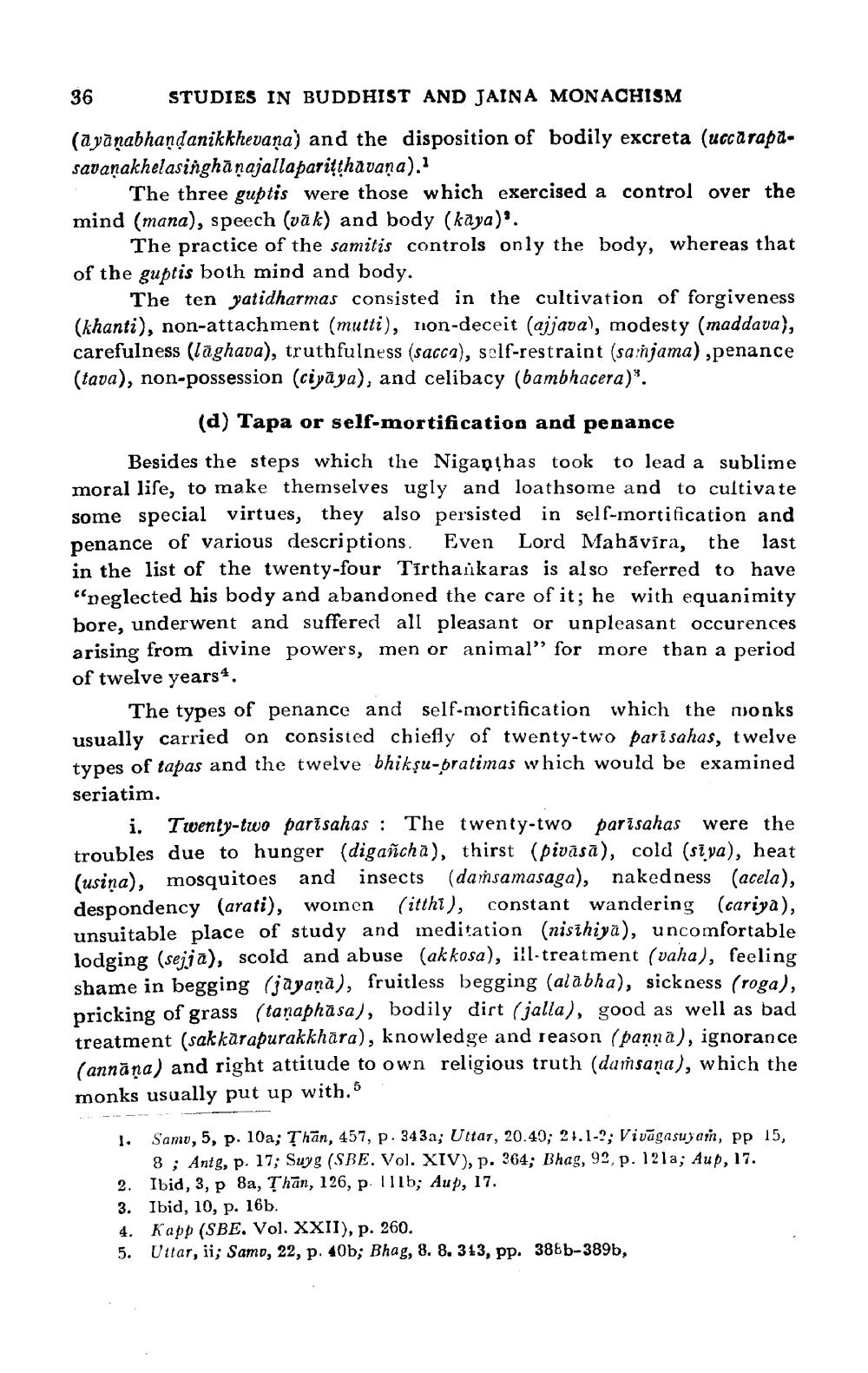________________
STUDIES IN BUDDHIST AND JAINA MONACHISM
(ayanabhandanikkhevana) and the disposition of bodily excreta (uccārapa
36
savaṇakhelasinghaṇajallapariṭṭhāvaṇa).1
The three guptis were those which exercised a control over the mind (mana), speech (vāk) and body (kaya)'.
The practice of the samitis controls only the body, whereas that of the guptis both mind and body.
The ten yatidharmas consisted in the cultivation of forgiveness (khanti), non-attachment (mutti), non-deceit (ajjava), modesty (maddava), carefulness (laghava), truthfulness (sacca), self-restraint (samjama),penance (tava), non-possession (ciyāya), and celibacy (bambhacera)".
(d) Tapa or self-mortification and penance
Besides the steps which the Niganthas took to lead a sublime moral life, to make themselves ugly and loathsome and to cultivate some special virtues, they also persisted in self-mortification and penance of various descriptions. Even Lord Mahāvīra, the last in the list of the twenty-four Tirthankaras is also referred to have "neglected his body and abandoned the care of it; he with equanimity bore, underwent and suffered all pleasant or unpleasant occurences arising from divine powers, men or animal" for more than a period of twelve years*.
The types of penance and self-mortification which the monks usually carried on consisted chiefly of twenty-two pari sahas, twelve types of tapas and the twelve bhiksu-pratimas which would be examined seriatim.
i. Twenty-two parisahas: The twenty-two parisahas were the troubles due to hunger (digañcha), thirst (pivasa), cold (siya), heat (usiņa), mosquitoes and insects (damsamasaga), nakedness (acela), despondency (arati), women (itthi), constant wandering (cariya), unsuitable place of study and meditation (nisihiya), uncomfortable lodging (sejja), scold and abuse (akkosa), ill-treatment (vaha), feeling shame in begging (jayana), fruitless begging (alabha), sickness (roga), pricking of grass (taṇaphasa), bodily dirt (jalla), good as well as bad treatment (sakkarapurakkhāra), knowledge and reason (panna), ignorance (annana) and right attitude to own religious truth (damsana), which the monks usually put up with. 5
Samu, 5, p. 10a; Than, 457, p. 343a; Uttar, 20.40; 21.1-2; Vivagasuyam, pp 15, 8; Antg, p. 17; Suyg (SBE. Vol. XIV), p. 364; Bhag, 92, p. 121a; Aup, 17.
2. Ibid, 3, p 8a, Than, 126, p. 111b; Aup, 17.
3. Ibid, 10, p. 16b.
4. Kapp (SBE. Vol. XXII), p. 260.
5. Uttar, ii; Samo, 22, p. 40b; Bhag, 8. 8. 313, pp. 388b-389b,
1.




